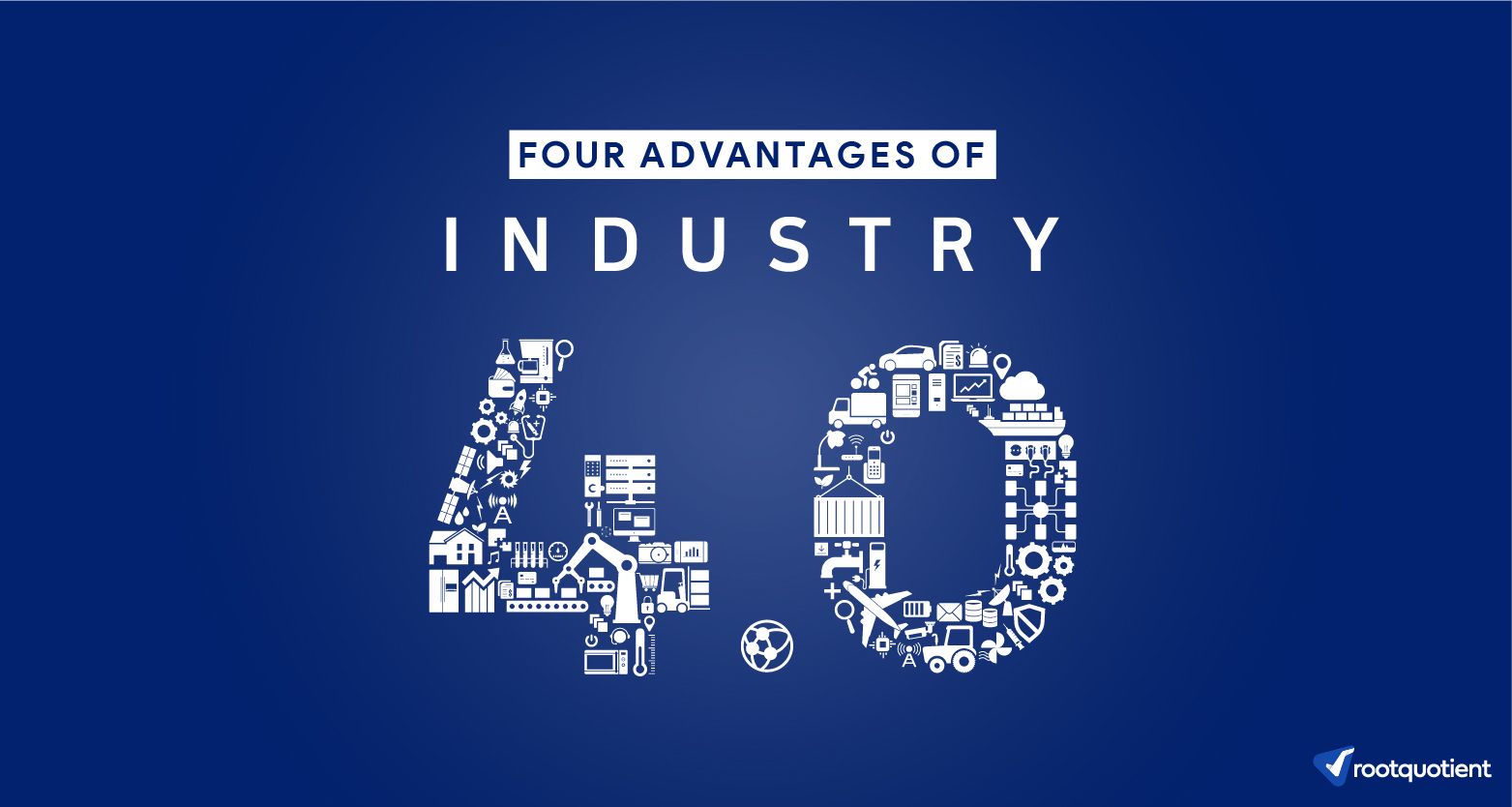A perspective of the revolution, Industry 4.0 as it finds itself in a transitional phase.
When computers were introduced to the world, the revolution it created still stands fresh in the minds of those who witnessed it. Such waves created by technology are never-ending and right now, we are at the next transitional phase, which has been brewing for quite some time and is all set to lead to a new high in the industries. While some claim that Industry 4.0 is a mere marketing gimmick, one cannot help but notice the huge impact it is already creating in various forms like AI, Internet of Things, Cloud technology, big data and analytics, cybersecurity, augmented reality, etc. Industry 4.0 is the revolution that is believed to be the extension of what appeared in Industry 3.0. It is about how to revolutionize the whole process of business and its growth. Rootquotient is recognized among the Top Software Development Companies.
Why It Is Better To Adapt An Industry 4.0 Model?
No industry is devoid of technological dependence. Elevating the business model with aspects like digital transformation, automation, large data collection, and many more specific ones naturally have several advantages.
1. Competition against big companies
A startup, with the right investment in technology and digitization, would be on a similar platform as any giant in the same field. With all businesses, big and small, working on similar developments and having similar investments, large corporations also collaborate more with smaller firms to help them move faster in the direction of industry 4.0, thus making the competition almost equal or keeping them on a level playing field with corporate giants.
2. Attract more young blood
Modern and innovative technology attracts young and new workers as even education focus on these specific needs of the industry. Businesses are at an advantage when the resources are pre-trained rather than investing time and energy in training the existing resources. Fresh minds also mean fresh ideas. In a business world demanding constant innovation and rapid growth, there couldn’t be a better time for both businesses and youngsters to grow together.
3. Resolve potential issues before they latch on to the progress
Automation, real-time data, predictive analysis, etc. can save a humongous amount of time in terms of problem-solving. They assist in identifying potential issues and not letting them grow into bigger ones.
4. Cost-effective
The technology involved in industry 4.0 revolves around optimizing all aspects of the business process, which eventually leads to smarter and faster decision making. Better efficiency means increased profit.
There is a ‘digital compass’ that helps companies identify their needs and find the necessary tools to achieve them.
Why Some View It Is A Marketing Fad?
There is always one section of the world against revolutions. This group believes that industry 4.0 is a marketing fad and what looks like valid reasoning is nothing but a myth to be easily busted. Unlike other revolutions, this does not involve groundbreaking inventions. This is more of an extension to what is already available from industry 3.0. Innovations, extensions, and betterment of technology can be categorized as a revolution if they result in faster and unimaginable changes in a short span.
Another reason could be that this being a transitional phase, there isn’t a clear and widespread adaptation to the newer models. Companies are experimenting and trying to implement them within the current business models. When all businesses rely on them and the cycle is complete, it would register more like a business revolution than as a marketing fad.
There are formidable challenges in adapting to new technologies and working models. However, the future looks bright as resources would be equipped already and needn’t be trained on these specific skills. Once the businesses get hold of this rapid growth and transition, wiser decisions and utilizing the wider scope smartly would make them unstoppable. The impact of digital transformation in business proves to be learning curves for businesses to be quick and sure of the unique kind of transformation needed for them. This looks to be a swift transition and it is not long before that we see its full impact on industries.
